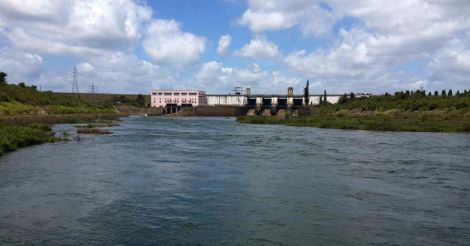Buses engulfed in flames, terrified passengers, threatening mobs... these were the horrifying images that streamed into our homes recently. Overnight, a bustling, thriving city had turned into a battle ground.
And the reason for this eruption of violence? Water... the most basic requirement for life as we know it.
In ancient times , the great civilizations of the world flourished along the banks of mighty rivers – the Tigris, the Euphrates, the Nile, the Indus, the Yellow River, the list goes on. And just as the rivers aided the rise of these civilizations their decline in many cases could be attributed to the same rivers. A change in the course of the river or the drying up a riverine system were often the catastrophes that rang the death knell for these societies.
Of course, over the millennia the development of increasingly sophisticated methods of storage, transportation and distribution of this vital resource have led to communities no longer being forced to live and farm in close proximity to large water sources. Rivers and other water bodies have been dammed, diverted and interlinked so as to meet the needs of a widespread population more equitably.
But this ease of access to water has changed our attitude to this precious resource... wastage and over-consumption are now commonplace. The water that flows out of our taps on demand appears to be divorced from its natural source in the eyes of the urban user. And the importance of conserving water, protecting our riverine eco system and recharging our water table seems lost on the millions who now see 'the tap' as the primary natural source of water.
By the same author: Transform our cities, reclaim the outdoors for urban dwellers
Virtual is dehumanizing us: it's time for a digital detox
Be the change… a new wave of social activism is sweeping Kerala
Similarly, in rural areas the many canals and irrigation schemes bringing water from faraway sources as well as new pumps that access groundwater at depths previously inaccessible have led to massive over-consumption. Crops with high water requirement have replaced the more traditional varieties which suited the natural availability of water in a region. Traditional farming wisdom and methods of water harvesting have been abandoned and the cost of our actions is now clearly visible. Satellite imagery shows that ground water levels in our densely populated and intensively farmed northern plains are dangerously low due to this over-consumption. A classic case of killing the goose that lays the golden egg?
In monsoon dependent India, add climate change, which is weakening our annual monsoon with every passing year, to the above patterns of wastage and over-consumption in both rural and urban communities and we have all the makings of a disaster of epic proportions – a dry and drought ridden India.
If the hunger for oil was behind many of the conflicts of the past century we can say with certainty that the thirst for water will be the cause of many conflicts in this century. Sooner than we imagine, fresh water will become the most prized and fought over natural resource and the world will be sharply divided along the lines of water rich economies and those that are water deficient. A terrifying prospect indeed, for where there is no water can there be life?
So how can we prevent this looming disaster? What can we as individuals do to avert this situation?
The answer is common knowledge. Recharge our water table. In other words, push more water into the ground than we draw out of it. In fact, a standard diagram in our middle school science textbooks labeled "the water cycle " tells us most of what we we need to know.
At the moment most of our rain water runs out into the sea or evaporates within a short span of time instead of seeping into our underground water table and replenishing our rivers, lakes and wells. But what if, every building were to harvest this rain water from their roof tops and allow it to percolate into the ground? It would make an enormous difference at a very small cost. Another simple solution would be to remove the end to end paving over and concretization of the ground particularly in urban areas so that rain water can actually seep down into the water table instead of pooling on the surface and evaporating. Reducing consumption in our homes and recycling wherever possible are small but vital initiatives that we as individuals can easily undertake.
On a larger scale, afforestation plays a crucial role in increasing rainfall as well as trapping the surface run off and forcing it into aquifers. Reviving traditional systems of water harvesting in rural areas before this knowledge is lost is equally key to replenishing our ground water sources.
And surely, instead of fighting over riparian rights in rivers that are fast dying, what we need to do is to come together and revive these once mighty rivers and lakes so that everyone benefits. Indiscriminate mining of sand from river beds is a major reason for the decline of our rivers and a strict enforcement of the ban on sand mining in rivers and harsh punishments for those who break the law would be a good start in ensuring that our rivers flow in strength again.
While some of our efforts may seem puny and insignificant when held up against the magnitude of the crisis, it is important to remember that “Many drops an ocean make" and that every tiny action taken by us in concert with the actions of millions of others can help to turn the tide and reverse the course of our rapid descent into becoming a drought stricken, violence ridden, dust bowl!
(The author is a writer based in Kochi. This column will appear every alternate Wednesday)

























 Krishna Raja Sagara Dam built on Cauvery river | File Photo: IANS
Krishna Raja Sagara Dam built on Cauvery river | File Photo: IANS